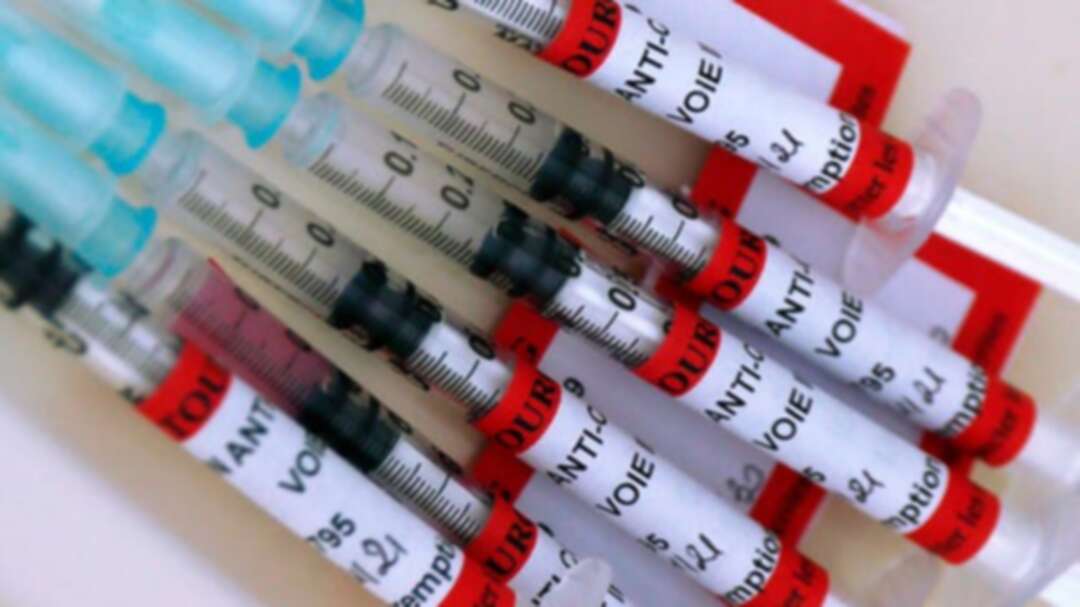-
Coronavirus: CDC says second COVID-19 vaccine doses may be given six weeks later

Follow-up doses of the Covid-19 vaccines could be given up to six weeks later if it’s not feasible to get them in the recommended interval, the Centers for Disease Control and Prevention said, with the US Food and Drug Administration also offering some flexibility for “modest delays.”
The guidance posted in a Jan. 21 update to the CDC website said a second dose should be administered as close to the recommended schedule as possible, either three weeks for the Pfizer Inc.-BioNTech SE vaccine or four weeks for the Moderna Inc. shot.
But if it’s impossible to get the follow-up shot on time, the CDC says people may schedule it as long as six weeks, or 42 days, after their initial dose. There is “limited data on efficacy of the vaccines beyond that interval, according to the guidance, but if the second dose is administered later, “there is no need to restart the series.”
The FDA said slight delays shouldn’t affect the protection offered by the vaccine, after the agency resisted pressure earlier this month to stretch supply by adding time between the two shots.
Both vaccines authorized for emergency use in the US were cleared based on trials of two doses weeks apart. A grace period of four days ahead of schedule would be considered valid for a second dose, but people shouldn’t receive the second dose earlier than that.
The CDC made the change in response to feedback on earlier guidance, agency spokeswoman Kristen Nordlund said in an email. It’s intended to provide flexibility in situations where patients can’t return on a specific date or their circumstances change, for example if they enter or leave a nursing home, she said. The CDC doesn’t want guidance “to be so rigid that it creates unintended barriers, she said.
Analysis of the Pfizer shot included some people who got the second dose as late as 42 days after the first, she said. The agency isn’t recommending the change to stretch the supply of doses “but rather to address feasibility issues, she said.”
The CDC also reiterated that doses from the two vaccines are not interchangeable and people should get a second dose of the same product. In “exceptional situations when the initial vaccine is unknown or unavailable, “any available mRNA COVID-19 vaccine may be administered at a minimum interval of 28 days,” the agency said.
The CDC said the Covid-19 vaccines generally should be administered alone, not simultaneously with other inoculations, such as for the flu.
The need for follow-up doses at specified intervals is one layer of complication in the national vaccination campaign. Shortages of doses and confusion over supply has led to long waits and frustration, even as the incoming Biden administration pledges to accelerate the delivery of vaccines.
 An Israeli health worker administers a dose of the Pfizer-BioNtech Covid-19 vaccine to a woman at Clalit Health Services, in the hallways of the Netanya stadium, on January 20, 2021 in the Israeli coastal city of Netanya. (AFP)
An Israeli health worker administers a dose of the Pfizer-BioNtech Covid-19 vaccine to a woman at Clalit Health Services, in the hallways of the Netanya stadium, on January 20, 2021 in the Israeli coastal city of Netanya. (AFP)“The FDA recognizes that getting as many people as possible across the country fully immunized will help to curtail the spread of the virus that causes COVID-19 and should be a priority, the FDA said in a statement. “Modest delays in the administration of the second dose, if absolutely necessary, would not be expected to decrease the protection conferred by the 2nd dose and are preferable to not completing the 2-dose series.”
Then-FDA Commissioner Stephen Hahn and Peter Marks, head of the agency’s office that oversees vaccines, signed on to an earlier statement that said extending the time between shots hadn’t been studied and “may ultimately be counterproductive to public health. While Hahn has left the agency, Marks, a career employee, remains.
Biden’s plan for combating the pandemic released Thursday includes some wiggle room for alternative dosing schedules. A single-dose Covid vaccine from Johnson & Johnson is in late-stage trials now, with data expected to be analyzed in the weeks ahead.
“The federal government will explore dose-sparing strategies that have the potential to substantially expand vaccine supply, while maintaining a commitment to abiding by FDA recommendations, according to the plan.
source: Bloomberg
Image source: AP
Levant
You May Also Like
Popular Posts
Caricature
BENEFIT Sponsors BuildHer...
- April 23, 2025
BENEFIT, the Kingdom’s innovator and leading company in Fintech and electronic financial transactions service, has sponsored the BuildHer CityHack 2025 Hackathon, a two-day event spearheaded by the College of Engineering and Technology at the Royal University for Women (RUW).
Aimed at secondary school students, the event brought together a distinguished group of academic professionals and technology experts to mentor and inspire young participants.
More than 100 high school students from across the Kingdom of Bahrain took part in the hackathon, which featured an intensive programme of training workshops and hands-on sessions. These activities were tailored to enhance participants’ critical thinking, collaborative problem-solving, and team-building capabilities, while also encouraging the development of practical and sustainable solutions to contemporary challenges using modern technological tools.
BENEFIT’s Chief Executive Mr. Abdulwahed AlJanahi, commented: “Our support for this educational hackathon reflects our long-term strategic vision to nurture the talents of emerging national youth and empower the next generation of accomplished female leaders in technology. By fostering creativity and innovation, we aim to contribute meaningfully to Bahrain’s comprehensive development goals and align with the aspirations outlined in the Kingdom’s Vision 2030—an ambition in which BENEFIT plays a central role.”
Professor Riyadh Yousif Hamzah, President of the Royal University for Women, commented: “This initiative reflects our commitment to advancing women in STEM fields. We're cultivating a generation of creative, solution-driven female leaders who will drive national development. Our partnership with BENEFIT exemplifies the powerful synergy between academia and private sector in supporting educational innovation.”
Hanan Abdulla Hasan, Senior Manager, PR & Communication at BENEFIT, said: “We are honoured to collaborate with RUW in supporting this remarkable technology-focused event. It highlights our commitment to social responsibility, and our ongoing efforts to enhance the digital and innovation capabilities of young Bahraini women and foster their ability to harness technological tools in the service of a smarter, more sustainable future.”
For his part, Dr. Humam ElAgha, Acting Dean of the College of Engineering and Technology at the University, said: “BuildHer CityHack 2025 embodies our hands-on approach to education. By tackling real-world problems through creative thinking and sustainable solutions, we're preparing women to thrive in the knowledge economy – a cornerstone of the University's vision.”
opinion
Report
ads
Newsletter
Subscribe to our mailing list to get the new updates!






















